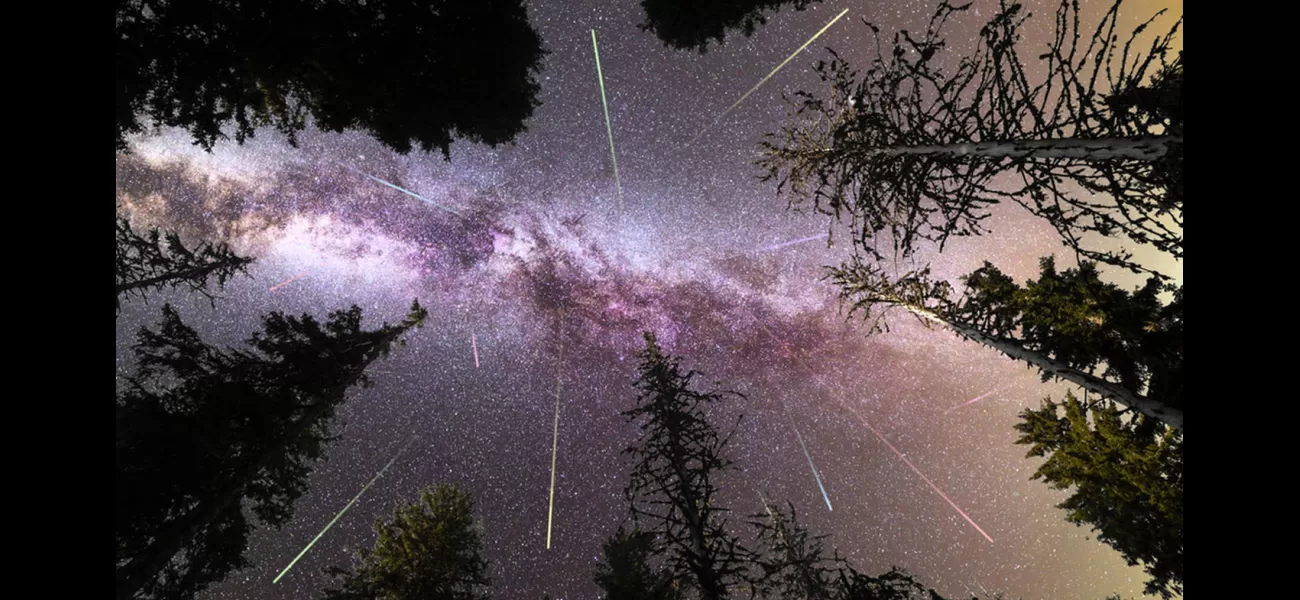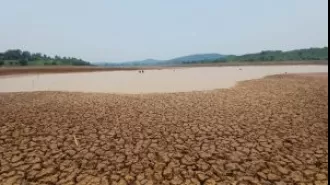Australian skies set to be illuminated by two meteor showers.
Discover the prime time for observing them light up the winter sky.
July 30th 2024.

Attention all star gazers in Australia! Get ready to witness a breathtaking celestial display in the upcoming days as not one, but two meteor showers are set to light up the night sky. The Southern Delta Aquariid meteor shower, ranked as the third most powerful in Australia, will reach its peak tomorrow. And as if that wasn't enough, it will also coincide with the Alpha Capricornids, a smaller but equally mesmerizing meteor shower.
For those wondering how to catch a glimpse of these shooting stars, here's some advice from the experts. The best time to spot them is tonight or tomorrow night, away from the bright city lights. The darker the sky, the more meteors you'll be able to see. So, pack your bags and head out to a remote spot for an uninterrupted view of this cosmic phenomenon. The show starts around 9pm, but the peak hours are between 11pm and 3am, when you can expect up to 20-25 meteors per hour under perfect conditions.
However, don't be disheartened if you can't see that many. In an average year, the Southern Delta Aquariids are at their peak for only 48 hours, and even then, you may only spot 4-5 meteors per hour. The Alpha Capricornids, on the other hand, are a weaker shower, producing slow but bright fireballs that can light up the winter sky in a spectacular fashion. So, keep your eyes peeled for those!
For those curious about what exactly a meteor shower is, here's a crash course. These stunning displays occur annually and can be seen without any special equipment. They are caused by debris from comets, such as the 96P/Machholz which is believed to be the source of the Delta Aquariids, or the 169P/NEAT which produces the Alpha Capricornids. When these rocks enter the Earth's atmosphere, they get heated up due to air resistance, creating a fiery glow and leaving a trail behind them, commonly known as a "shooting star."
So, mark your calendars and make sure to step outside tonight or tomorrow night for a chance to witness this natural wonder. And don't forget to share your experiences with us!
For those wondering how to catch a glimpse of these shooting stars, here's some advice from the experts. The best time to spot them is tonight or tomorrow night, away from the bright city lights. The darker the sky, the more meteors you'll be able to see. So, pack your bags and head out to a remote spot for an uninterrupted view of this cosmic phenomenon. The show starts around 9pm, but the peak hours are between 11pm and 3am, when you can expect up to 20-25 meteors per hour under perfect conditions.
However, don't be disheartened if you can't see that many. In an average year, the Southern Delta Aquariids are at their peak for only 48 hours, and even then, you may only spot 4-5 meteors per hour. The Alpha Capricornids, on the other hand, are a weaker shower, producing slow but bright fireballs that can light up the winter sky in a spectacular fashion. So, keep your eyes peeled for those!
For those curious about what exactly a meteor shower is, here's a crash course. These stunning displays occur annually and can be seen without any special equipment. They are caused by debris from comets, such as the 96P/Machholz which is believed to be the source of the Delta Aquariids, or the 169P/NEAT which produces the Alpha Capricornids. When these rocks enter the Earth's atmosphere, they get heated up due to air resistance, creating a fiery glow and leaving a trail behind them, commonly known as a "shooting star."
So, mark your calendars and make sure to step outside tonight or tomorrow night for a chance to witness this natural wonder. And don't forget to share your experiences with us!
[This article has been trending online recently and has been generated with AI. Your feed is customized.]
[Generative AI is experimental.]
0
0
Submit Comment





